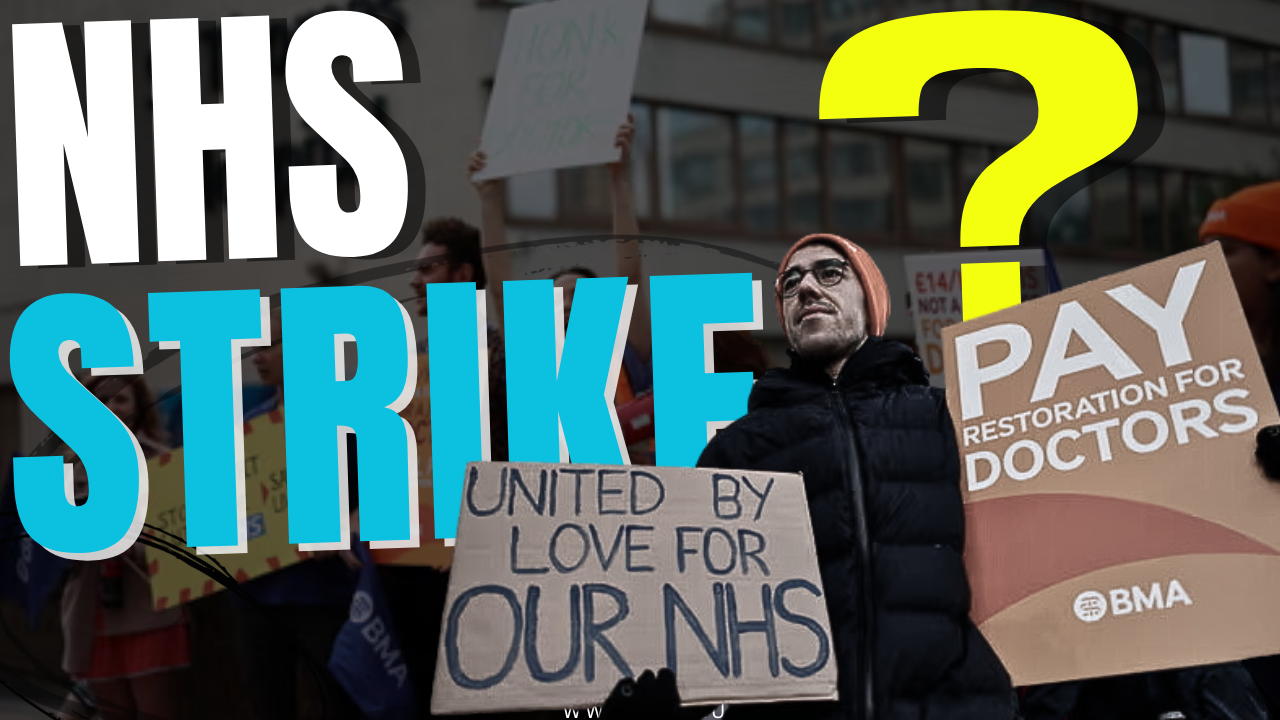
Health Crisis: Junior Doctors’ Bold Move in the Six-Day Strike
In a shocking turn of events, junior doctors across Britain have initiated an unprecedented six-day strike, constituting the lengthiest industrial action in the history of the National Health Service (NHS). This breaking news, unfolding from January 3rd to January 9th, is causing widespread disruptions in routine healthcare services, sparking concerns about its profound impact on patients.
Did you know that thousands of junior doctors, nearly half of the NHS doctor workforce, are actively involved in this historic walkout? This strike, orchestrated by the British Medical Association (BMA), is a direct response to a prolonged pay dispute with the government.
Reasons Behind the Strike
The primary catalyst for the strike is a protracted pay dispute between junior doctors, represented by the British Medical Association (BMA), and the government. The BMA contends that junior doctors in England have endured a 26% real-terms pay reduction since 2008 due to below-inflation pay rises. Seeking a 35% pay increase to restore earnings to 2008 levels, the BMA’s demand is deemed financially unfeasible by the government.
Duration and Anticipated Effects
This strike, spanning 144 hours, is anticipated to be the most disruptive in NHS history for several reasons. Firstly, it’s the longest-ever strike by junior doctors, significantly impacting patient care. Secondly, its timing immediately following the Christmas and New Year period intensifies the challenges faced by the NHS. Lastly, January typically witnesses heightened winter pressures, further straining healthcare services.
Previous Negotiations Overview
Despite the government’s offer of an 8.8% average pay rise last summer, junior doctors found it inadequate, leading to escalated strike efforts. Talks between the government and junior doctors broke down after five weeks, resulting in the current prolonged strike.
Participating Groups
Both the British Medical Association and the Hospital Consultants and Specialists Association are participating in the strike. In contrast, consultants and specialty doctors have already reached a pay deal with the government.
Service Disruptions and Public Guidance
The strike is causing significant disruptions, affecting routine hospital services, such as planned operations, check-ups, and elective procedures. Emergency care, including A&E, critical care, maternity services, and neonatal care, is being prioritized. Patients are advised to seek necessary care through regular channels, reserving 999 and A&E for life-threatening emergencies. Pharmacies and GPs remain unaffected, ensuring continued access to appointments and health advice.
Financial Implications and Past Strikes
The NHS has already incurred substantial financial losses due to a year of rolling strikes across the health sector. Approximately 1.2 million planned appointments have been delayed, resulting in an estimated cost of £2 billion for the NHS.
In conclusion, the ongoing six-day strike by junior doctors poses significant challenges to patient care and the already strained healthcare system. The unresolved pay dispute, compounded by the complexities of managing the pandemic and seasonal illnesses, underscores the need for a swift resolution to ensure the stability of the NHS.
Q: Are doctors in the US going on strike?
As of now, there are no widespread strikes involving doctors across the United States. However, there have been instances of healthcare workers, such as nurses and technicians, participating in strikes. In October 2023, over 75,000 Kaiser Permanente workers in California were prepared for a three-day strike due to concerns about staffing, wages, and benefits.
Q: Are young doctors going on strike?
Yes, junior doctors have been participating in strikes in different countries, including the UK, India, and South Korea. They often strike because of low wages, difficult working conditions, staff shortages, and concerns about their training and career progression.
Q: Why are actors going on strike?
Actors might go on strike for various reasons, such as wanting better pay, improved benefits, fair residual payments for reruns or streaming, and better working conditions, including reasonable working hours and safe environments.
Q: When did junior doctor strikes happen in 2023?
Junior doctors went on strikes at various times in 2023 in different countries:
In the UK, the British Medical Association (BMA) organized several strike days, including a six-day strike in September.
In India, junior doctors in different states went on strike in January and July 2023, asking for better pay and working conditions.
In South Korea, junior doctors and medical students held a strike in May 2023 to protest against a proposed medical reform plan.
Q: Who are junior doctors?
Junior doctors are medical graduates who are undergoing postgraduate training to become specialists. They work in hospitals under the guidance of senior doctors, gaining experience in various medical specialties.
Q: How much do junior doctors get paid?
Junior doctor salaries vary, but as an example, in the UK, a junior doctor’s starting salary is around £57,000 per year. In the US, resident physicians’ salaries range from approximately $60,000 to $80,000 annually.
Q: Is the NHS currently on strike?
While there have been strikes involving different NHS staff in 2023, including nurses and paramedics, there haven’t been major strikes specifically involving NHS doctors. The British Medical Association (BMA) has mentioned the possibility of further strikes if negotiations about pay and working conditions don’t reach a satisfactory resolution.
It’s essential to stay informed about doctor and healthcare worker strikes as they can affect patient care. Understanding the reasons behind these strikes helps in advocating for better working conditions and fair treatment for medical professionals, contributing to an improved healthcare system for everyone.
In a shocking turn of events, junior doctors across Britain have initiated an unprecedented six-day strike, constituting the lengthiest industrial action in the history of the National Health Service (NHS). This breaking news, unfolding from January 3rd to January 9th, is causing widespread disruptions in routine healthcare services, sparking concerns about its profound impact on…
In a shocking turn of events, junior doctors across Britain have initiated an unprecedented six-day strike, constituting the lengthiest industrial action in the history of the National Health Service (NHS). This breaking news, unfolding from January 3rd to January 9th, is causing widespread disruptions in routine healthcare services, sparking concerns about its profound impact on…